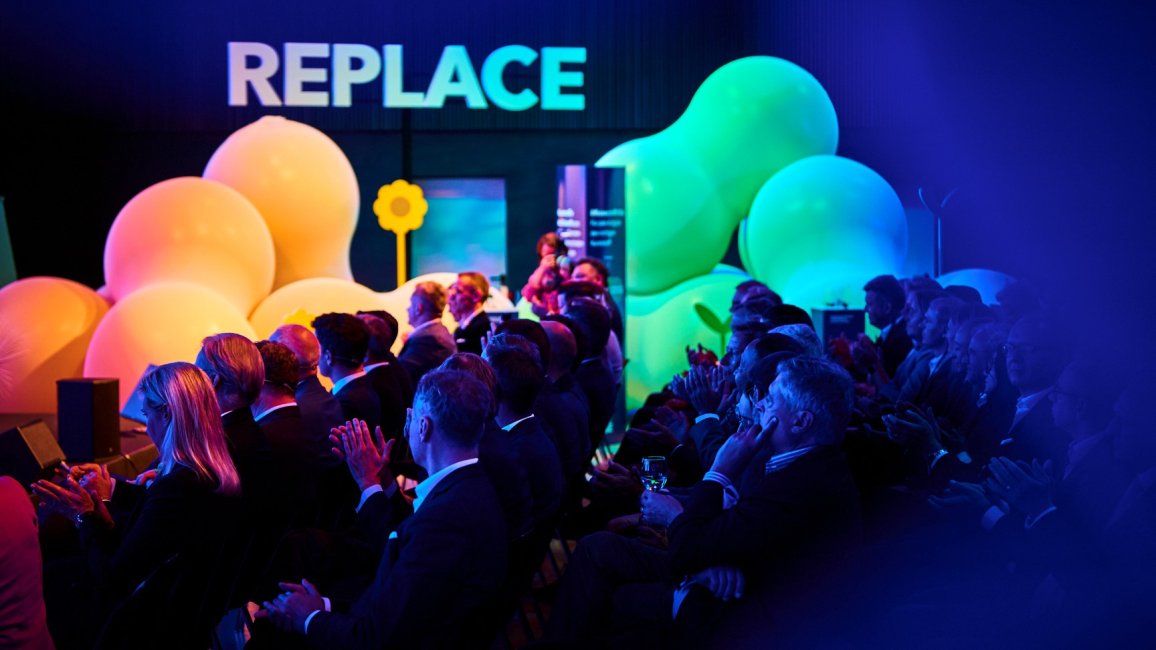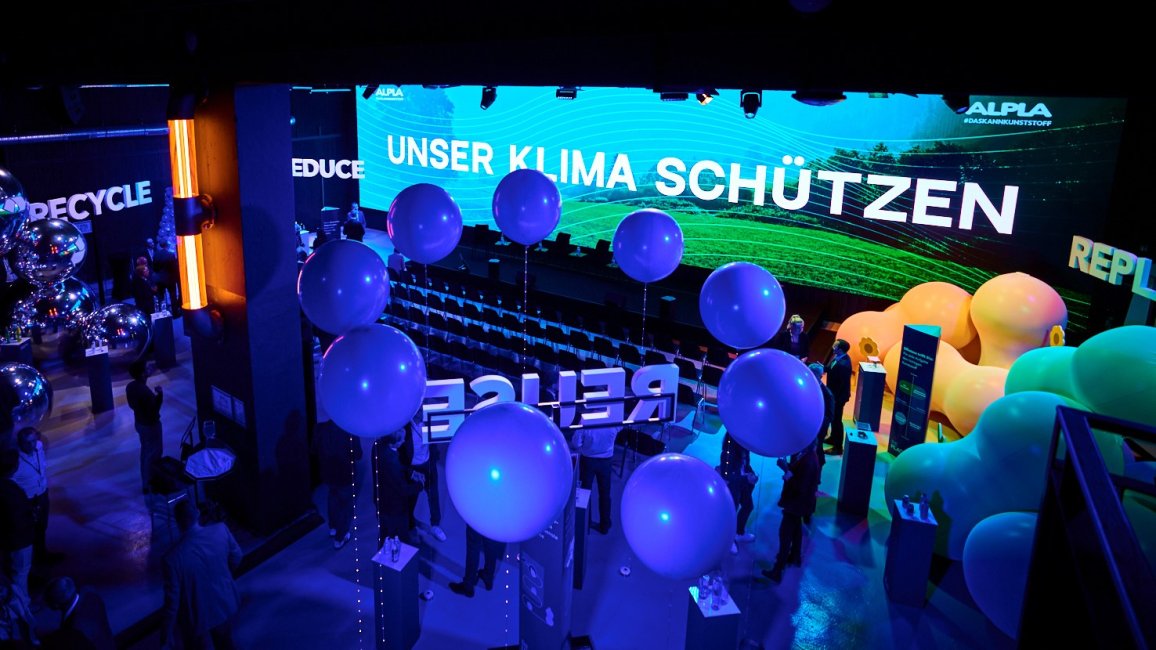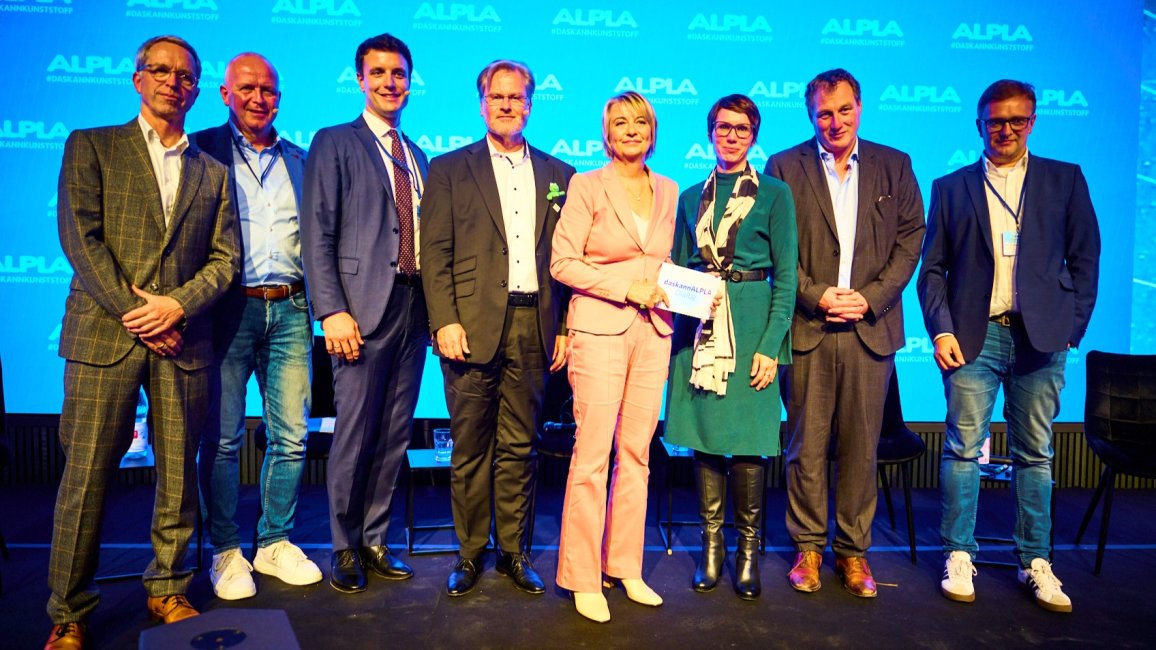ALPLA launches dialogue about the benefits of plastic
As a recyclable material, plastic is a key resource for the sustainable circular economy of the future. Packaging and recycling specialist ALPLA advocated for fact-based discourse in a dialogue with politicians, business and academia in Berlin on 9 October. With Design for Recycling and the accelerated processing of post-consumer recycled material (PCR), the plastics processing industry can contribute to climate protection.

Packaging and recycling specialist ALPLA invited roughly 100 guests from the worlds of politics, business and academia to Berlin on 9 October to discuss the circular plastics economy. (All photo credits: Harry Weber)
Plastic can protect the climate and provide for the world. With its #daskannkunststoff (‘PlasticCanDoThis’) campaign, packaging and recycling specialist ALPLA is committed to a fact-based view of the recyclable material among the public. On 9 October, the company invited guests from the worlds of politics, business and academia to Berlin for a dialogue. They discussed the goals, challenges and solutions for the circular economy of the future.
‘Climate protection and prosperity depend on an efficient, circular plastics economy. It requires innovative technologies, industrial pioneers, appreciation of the material and awareness amongst people. We want to contribute at all levels,’ emphasised host Georg Pescher, Managing Director of ALPLA DE-BE-NL. Roughly 100 people accepted the invitation to participate in the dialogue at the Alte Münze venue in Berlin-Mitte. At it, the themes of ‘Recycle, Reduce, Reuse and Replace’ were made a spectacle, with spherical structures symbolising molecules and polymers as part of an informative exhibition.

A pop-up installation called #daskannkunststoff (‘PlasticCanDoThis’) at the Alte Münze venue in Berlin embodies the versatility and benefits of this recyclable material.
Ideas for the circular economy
Cleaning product manufacturer Werner & Mertz works with ALPLA to create sustainable packaging made from post-consumer recycled material. In his keynote speech, CEO Reinhard Schneider emphasised the importance of mechanical recycling for consumer confidence. Behavioural economist Gerhard Fehr illustrated how the circular economy can become tangible and guiding for as many people as possible.

Launched the dialogue (from left): Georg Pescher, Volker Harbecke, Philipp Lehner, Reinhard Schneider, Anke Plättner (Moderator), Judith Skudelny, Gerhard Fehr, Prof. Dr. Henning Wilts.
‘Is Plastic Fantastic?’
How much can the circular plastics economy contribute to climate and environmental protection, what needs to change in the industry and politics; and what role does image play? ALPLA CEO Philipp Lehner discussed this with Judith Skudelny (FDP Bundestag member), Henning Wilts (Wuppertal Institute) and Volker Harbecke (Carolinen Brunnen). ‘Plastic is the key challenge of our time. We cannot go on in a linear way like we do today; at the same time, we need plastic to sustainably reduce global resource consumption,’ explained Henning Wilts, Head of the Circular Economy Department at the Wuppertal Institute of Climate, Environment and Energy.
ALPLA CEO Philipp Lehner emphasised the responsibility held by the plastics processing industry and advocated for an unbiased view of the recyclable material: ‘Plastic is an essential part of the solution – and unsurpassed in terms of safety, performance and sustainability. As an industry, we need to act together and shift the focus to the benefits of plastic. Only by working together and in exchange with each other can we make the future sustainable. #daskannkunststoff is a call to action – for all of us.’
